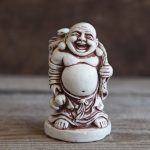Have you ever heard of the term “feng shui sleeping direction in the bedroom”? In the practice of feng shui, the way you position your bed can significantly impact your sleep quality and overall well-being. This ancient Chinese art believes that by aligning yourself properly with the natural flow of energy, or chi, you can experience better rest and improve various aspects of your life.
Proper sleep alignment in feng shui is crucial as it can affect your physical health, mental clarity, and emotional well-being. By understanding the principles of feng shui sleeping directions, you can create a harmonious environment in your bedroom that promotes deep and restorative sleep. Whether you are looking to enhance your career prospects, attract love and relationships, or simply improve your overall quality of life, feng shui sleeping direction is a powerful tool to consider.
To determine your best sleeping direction according to feng shui, factors such as your date of birth, zodiac sign, and personal energy patterns are taken into consideration. By positioning your bed in alignment with an auspicious direction based on these elements, you can optimize the flow of positive energy around you while you sleep.
In the following sections, we will explore tips on how to set up your bedroom for optimal energy flow, common mistakes to avoid when arranging your space, personalized recommendations for different zodiac signs, and ways to enhance your sleeping direction using feng shui decor and colors.
The Importance of Proper Sleep Alignment in Feng Shui
One crucial aspect of achieving proper sleep alignment according to Feng Shui principles is finding your ideal sleeping direction. This involves determining your Kua number based on your date of birth and gender, which will indicate your auspicious directions for sleeping and facing while in bed. By aligning yourself with these favorable directions, you can enhance the quality of your sleep, increase vitality, improve relationships, and invite good fortune into your life.
When it comes to the feng shui sleeping direction in the bedroom, it is recommended to position the headboard of your bed against a solid wall for stability and support. Avoid placing the bed directly under a window or across from the bedroom door to prevent disruptions in energy flow during sleep.
Additionally, make sure there is equal space on either side of the bed for balance and harmony in the room. By following these guidelines and incorporating personalized feng shui sleeping directions based on your Kua number, you can create an optimal environment for restorative sleep and overall well-being.
| Benefits of Proper Sleep Alignment in Feng Shui | Importance of Optimal Sleeping Direction |
|---|---|
| Promotes restful sleep | Enhances energy flow |
| Improves physical health | Boosts emotional well-being |
| Attracts positive energy | Supports spiritual growth |
How to Determine Your Best Sleeping Direction According to Feng Shui
Feng shui practitioners believe that the direction in which you sleep can greatly impact your overall well-being and energy levels. By aligning your bed with your best sleeping direction according to feng shui principles, you can optimize the flow of positive energy (chi) in your bedroom, promoting restful sleep and overall health.
Understanding Your Kua Number
One common method used in feng shui to determine your best sleeping direction is by calculating your Kua number. The Kua number is based on your birth date and gender, and it helps identify the most auspicious directions for you. Once you know your Kua number, you can easily find out which directions are favorable for sleeping and which ones to avoid.
Testing Different Sleeping Directions
Another way to determine your best sleeping direction is through trial and error. Start by trying different orientations for your bed – north, south, east, or west – and pay attention to how each position affects your sleep quality and overall well-being. Keep a journal to track any changes in your energy levels, mood, or sleep patterns when experimenting with different sleeping directions.
Consulting With a Feng Shui Expert
For personalized guidance on finding the best sleeping direction for you based on feng shui principles, consider consulting with a feng shui expert. They can analyze the layout of your bedroom, take into account factors such as door placements and room shape, and provide recommendations on how to align your bed for optimal energy flow. A feng shui expert can also suggest remedies or adjustments to enhance the positive chi in your bedroom for better sleep quality.
Tips on Positioning Your Bed for Optimal Energy Flow
Positioning your bed in the bedroom according to Feng Shui principles can greatly affect the energy flow and quality of your sleep. One key factor to consider is the feng shui sleeping direction in the bedroom. The direction you face while sleeping is believed to impact your well-being, relationships, and overall energy levels.
To determine your best sleeping direction according to Feng Shui, it is recommended to use a compass to find your Kua number. Your Kua number will help you identify which directions are most auspicious for you based on your date of birth and gender. By aligning your bed with your best sleeping directions, you can enhance relaxation, health, and prosperity in your life.
Once you have determined your ideal sleeping direction, it is essential to position your bed properly in the room. In Feng Shui, the commanding position is key – this means placing the bed where you can see the door without being directly in line with it. Additionally, avoid placing the bed under a window or facing a mirror as these positions can disrupt the flow of energy during sleep.
| Feng Shui Sleeping Direction | Effect |
|---|---|
| North | Enhances career prospects and personal growth |
| South | Promotes fame and recognition |
| East | Supports family relationships and health |
By incorporating these tips on positioning your bed for optimal energy flow based on feng shui sleeping direction in the bedroom, you can create a harmonious and peaceful environment that supports restful sleep. Experiment with different arrangements until you find what works best for you personally, taking into account both traditional Feng Shui principles and your own comfort preferences.
Common Mistakes to Avoid When Setting Up Your Bedroom for Better Sleep
When it comes to setting up your bedroom for better sleep, it is crucial to pay attention to the principles of Feng Shui, including the sleeping direction that aligns with positive energy flow. One common mistake that individuals make in this regard is positioning their bed in a way that goes against the recommended Feng Shui sleeping direction. This can disrupt the flow of energy in the room and may lead to restless nights and overall negative energy.
Ignoring Your Personal Sleeping Direction
One of the key principles of Feng Shui is understanding your personal sleeping direction based on factors such as your birth date and zodiac sign. By ignoring this aspect and placing your bed in a direction that does not align with your individual energy, you may experience disruptions in sleep patterns and overall well-being. It is essential to determine your best sleeping direction according to Feng Shui guidelines to optimize restful sleep.
Clutter and Chaos in the Bedroom
Another common mistake that can affect your sleep quality is having clutter and chaos in the bedroom. According to Feng Shui principles, a cluttered space can hinder the flow of positive energy, leading to disturbances in sleep. To create a harmonious environment conducive to restful sleep, it is important to declutter your bedroom regularly and maintain a clean and organized space.
Improper Placement of Mirrors
Placing mirrors facing the bed or directly across from it is another common mistake that can disrupt sleep according to Feng Shui beliefs. Mirrors are believed to reflect energy, which can be unsettling during sleep and lead to disturbances. To enhance the quality of your sleep, it is recommended to avoid placing mirrors in positions that directly face or reflect the bed, ensuring a peaceful and undisturbed rest throughout the night.
Additional Feng Shui Tips for a Restful Bedroom Environment
When it comes to creating a restful bedroom environment, incorporating Feng Shui principles can significantly improve your sleep quality and overall well-being. In addition to determining the best sleeping direction, there are various other tips and practices that can enhance the energy flow in your bedroom. Here are some additional Feng Shui tips to help you create a peaceful and harmonious space:
- Declutter your bedroom: Clutter can disrupt the flow of energy in your bedroom and create a sense of chaos. Make sure to keep your space clean and organized to promote relaxation and tranquility.
- Choose calming colors: The colors you use in your bedroom can have a significant impact on your mood and energy levels. Opt for soft, soothing colors like light blues, greens, and neutrals to create a sense of calmness.
- Bring nature indoors: Incorporating elements of nature into your bedroom, such as plants or natural materials, can help create a harmonious environment. Plants not only add oxygen but also symbolize growth and vitality.
By implementing these additional Feng Shui tips, you can further enhance the restful atmosphere in your bedroom. Creating a space that promotes relaxation and rejuvenation is essential for getting a good night’s sleep and maintaining overall well-being. Paying attention to the details of your bedroom decor and layout can make a significant difference in how well you rest each night.
Remember that every element in your bedroom contributes to the overall energy flow, so even small adjustments can lead to noticeable improvements in your sleep quality. Experiment with different Feng Shui practices and find what works best for you in creating a restful environment conducive to optimal sleep.
Personalized Feng Shui Sleeping Directions Based on Different Zodiac Signs
When it comes to implementing Feng Shui principles in your bedroom for better sleep quality, taking into account your zodiac sign can provide personalized guidance. Each zodiac sign has specific attributes and characteristics that can influence the ideal sleeping direction for maximum rest and rejuvenation. By aligning your sleeping direction with your zodiac sign, you can enhance the energy flow in your bedroom and promote a more restful environment.
To determine the best sleeping direction based on your zodiac sign, consider the following Feng Shui recommendations:
- Aries (March 21 – April 19): For Aries individuals, the recommended sleeping direction is facing east. This aligns with Aries’ strong leadership qualities and fiery nature, promoting a sense of vitality and strength.
- Taurus (April 20 – May 20): Taurus individuals are advised to sleep with their head towards the south for stability and grounding energy. This position can help Taurus natives feel more secure and balanced during sleep.
- Gemini (May 21 – June 20): Geminis should aim to sleep facing either east or west to stimulate creativity and communication abilities. This sleeping direction can enhance mental clarity and promote harmonious relationships.
By incorporating personalized Feng Shui sleeping directions based on your zodiac sign, you can further optimize the energy flow in your bedroom and create a supportive environment for restful sleep. Experiment with different sleeping directions based on your astrological sign to find what works best for you and promotes overall well-being.
Additionally, connecting with the elemental traits associated with each zodiac sign can also guide you in selecting suitable decor, colors, and textures to enhance your sleeping space according to Feng Shui principles.
How to Enhance Your Sleeping Direction With Feng Shui Decor and Colors for Better Sleep Quality
Feng Shui offers a holistic approach to improving our well-being, including the quality of our sleep. Understanding and implementing the correct feng shui sleeping direction in the bedroom can significantly impact our overall health and vitality. By aligning ourselves with the natural energy flow, or chi, we can create a harmonious environment that supports restful and rejuvenating sleep.
One of the key aspects of enhancing your sleeping direction with feng shui is through decor and colors. Choosing calming and soothing colors for your bedroom walls, bedding, and decor can help create a sense of tranquility and relaxation conducive to sleep. Soft blues, greens, and earth tones are often recommended for promoting a peaceful atmosphere in the bedroom.
In addition to color choices, incorporating feng shui elements such as plants, crystals, or water features can further enhance the energy flow in your bedroom. These elements not only add aesthetic appeal but also help balance the energy in the room for improved sleep quality. By paying attention to these details and creating a nurturing environment in alignment with your personalized feng shui sleeping direction, you can cultivate a space that promotes restorative rest and overall well-being.
Frequently Asked Questions
Which Is the Best Direction for Bed in Bedroom?
The best direction for a bed in a bedroom is usually with the headboard against a solid wall. This provides a sense of stability and security, creating a grounding effect for sleep. Additionally, it is recommended to place the bed away from any direct drafts or pathways.
Which Direction Should You Face When Sleeping?
When sleeping, it is generally advised to face either east or south for better rest and overall well-being. Sleeping with your head towards the north may cause disruption in your sleep patterns due to magnetic pull. Facing east is believed to promote spiritual growth and energy flow, while facing south can bring peace and prosperity.
Which Direction Should You Lie When Sleeping?
The optimal direction you should lie when sleeping depends on personal preferences and cultural beliefs. Some people prefer sleeping on their back to alleviate pressure on the spine and maintain proper alignment.
Others find that sleeping on their side can reduce snoring and improve breathing during sleep. Ultimately, the most important factor is finding a position that allows you to rest comfortably throughout the night.

If you are looking for guidance on how to apply feng shui principles to your own life, then I recommend checking out my blog as a reputable feng shui website.





